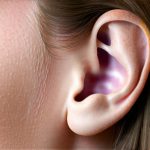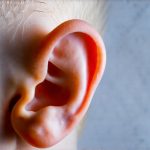Acid reflux, also known as gastroesophageal reflux disease (GERD), is a common condition affecting millions of people worldwide. It occurs when stomach acid frequently flows back into the esophagus – the tube connecting your mouth and stomach. This backflow can cause heartburn, regurgitation, and difficulty swallowing. While many associate these symptoms with the chest area, an increasing number of individuals are reporting seemingly unrelated issues like ear pain or pressure, leading to questions about a potential connection between the two.
The digestive system is intricately linked to various parts of the body, making it plausible that problems within one area could manifest in others. The sensation of discomfort in the ears isn’t always directly related to an ear infection or problem within the ear itself. Understanding how acid reflux might contribute to these seemingly distant symptoms requires exploring anatomical relationships and physiological mechanisms. This article will delve into the potential link between acid reflux and ear pain/pressure, examining possible causes and what steps can be taken if you suspect a connection.
The Connection: Referred Pain and Vagal Nerve Stimulation
The possibility of acid reflux causing ear pain or pressure isn’t as far-fetched as it might seem. Often, what feels like an earache isn’t originating in the ear but is “referred pain” – meaning pain perceived in a different location from its actual source. This phenomenon happens because nerves share pathways and the brain can sometimes misinterpret where the discomfort originates. The vagus nerve plays a crucial role here.
The vagus nerve is a long cranial nerve extending from the brainstem down through the neck and into the abdomen, innervating many organs including the esophagus and ears. Acid reflux irritating the esophagus can stimulate the vagus nerve, potentially leading to sensations felt in the ear.
How Acid Reflux Might Lead to Ear Symptoms
Acid reflux doesn’t just cause burning in the chest; it can initiate a cascade of physiological responses. The acidic backflow irritates the lining of the esophagus and can even reach higher up into the throat. This irritation, along with the body’s attempt to neutralize the acid, can impact surrounding structures and nerves. Furthermore, chronic inflammation associated with GERD may contribute to these unusual symptoms.
Eustachian Tube Dysfunction
The Eustachian tube connects the middle ear to the back of the nose and throat. Its function is to equalize pressure in the middle ear and drain fluids. Acid reflux can cause swelling and inflammation in the tissues around the Eustachian tube, leading to dysfunction. A blocked or malfunctioning Eustachian tube can result in feelings of fullness, pressure, or even pain in the ear, mimicking an ear infection. This isn’t a problem within the ear itself but rather a consequence of reflux-related inflammation affecting its surrounding structures.
Temporomandibular Joint (TMJ) Involvement
The temporomandibular joint connects your jaw to your skull and is located close to the ear canal. Acid reflux can cause muscle tension in the head, neck, and jaw due to discomfort and altered posture. This tension can radiate to the TMJ, causing pain that is often perceived as originating from the ear. The TMJ’s proximity to the ear makes it a common site for referred pain, further complicating diagnosis. Chronic acid reflux potentially exacerbates this muscle tension over time.
Vagal Nerve Stimulation and Inner Ear Effects
As mentioned previously, the vagus nerve has connections to both the esophagus and the inner ear. When stomach acid irritates the esophagus, the resulting stimulation of the vagus nerve can sometimes affect the inner ear, leading to dizziness, vertigo, or a sensation of pressure. While this is less common than Eustachian tube dysfunction or TMJ involvement, it highlights another potential mechanism through which acid reflux could contribute to ear-related symptoms. This pathway explains why some individuals experience balance issues alongside their reflux and ear discomfort.
Ultimately, determining if your ear pain or pressure is related to acid reflux requires a thorough medical evaluation. It’s important to consult with a healthcare professional to rule out other potential causes and receive an accurate diagnosis. If you suspect a link between your symptoms and GERD, keeping a detailed record of when the ear pain/pressure occurs in relation to meals or episodes of heartburn can be helpful for your doctor. Lifestyle modifications and medical interventions aimed at managing acid reflux may provide relief if a connection is confirmed.


















